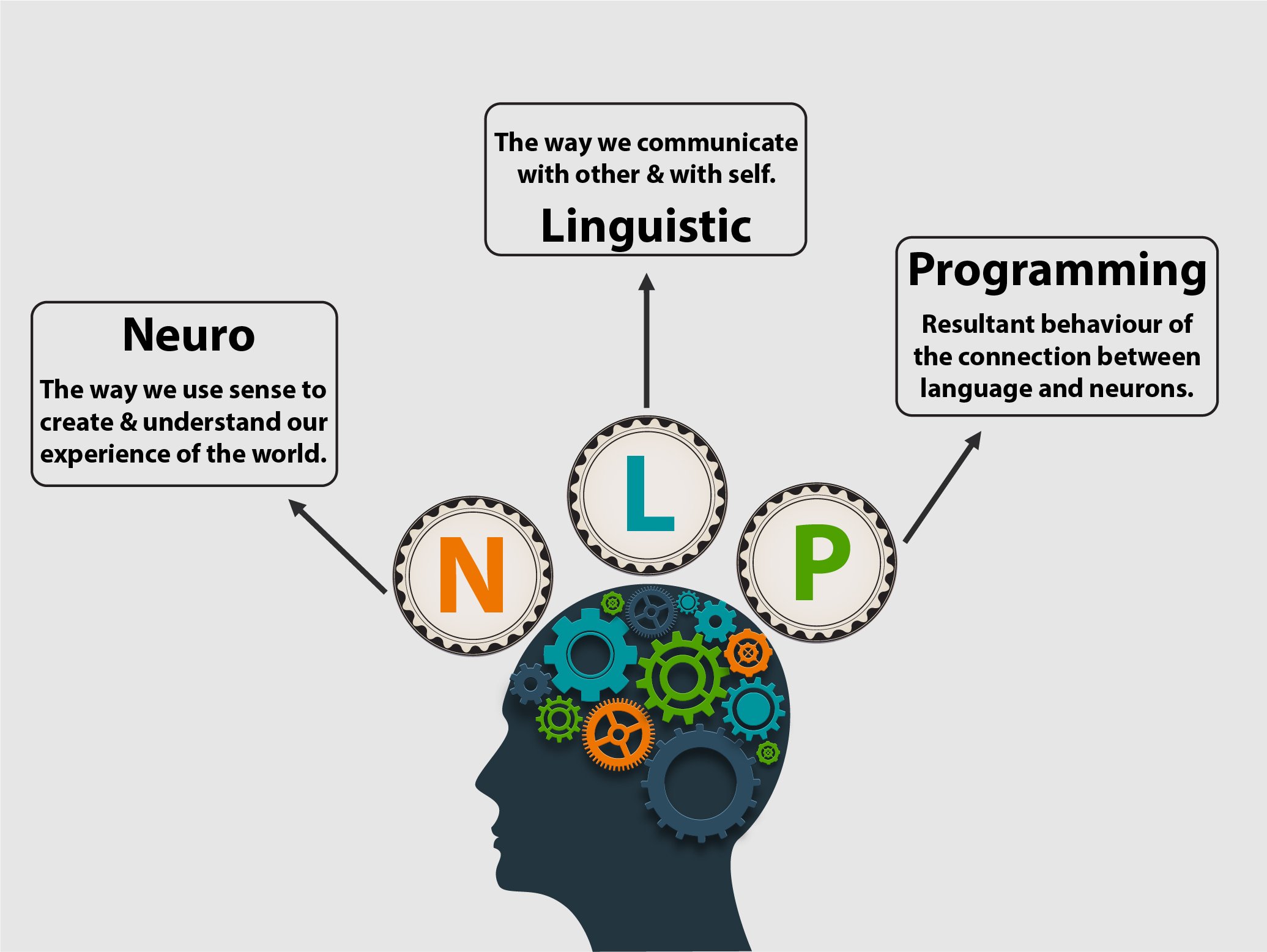source : image
A Brief History of Neuro-Linguistic Programming (NLP)
Since its emergence in the early 1970s by Richard Bandler and John Grinder, Neuro-Linguistic Programming (NLP) has become a highly influential model of communication and behavior change. Inspired by the notion of how our thoughts, language and actions are interrelated, NLP is a cornerstone of a holistic approach to the ability to interact with the world around us. In that time, NLP has become a valuable tool for professionals in various fields, including Sales and Marketing, to increase the effectiveness of their communications.
What is Neuro-Linguistic Programming
Neuro-Linguistic Programming (NLP) is a model of communication and behavior change that is widely recognized as a valuable tool for sales and marketing professionals. NLP brings with it a series of concepts and techniques that can help them build stronger customer relationships, understand customer needs and wants, and devise more effective marketing strategies. Let's examine in more depth how NLP can provide concrete benefits for Sales and Marketing practitioners.
Building Stronger Relationships with Customers
One of the most important aspects in the world of Sales and Marketing is the ability to build strong and meaningful relationships with customers. Through this relationship, professionals can better understand what customers want and require, thereby providing more relevant and valuable solutions.
In this context, NLP plays an important role in helping professionals build stronger relationships with customers in various ways:
1. Understand Customer Body Language and Mindset: NLP provides tools to read customer body language, mindset, and emotions. This way, professionals can be more sensitive to what words don't say, allowing them to adapt their approach to communication.
2. Effective and Persuasive Use of Language: NLP teaches linguistic techniques that enable professionals to use language more effectively and persuasively. This helps in conveying the message in a way that is more understandable and more capable of influencing.
3. Build Trust and Empathy: NLP encourages the development of empathy and trust skills. By applying this concept, professionals can better understand customer needs and build stronger bonds.
Understanding Customer Needs and Wants
Understanding customer needs and wants is at the heart of a successful Sales and Marketing strategy. NLP helps professionals to gain a deeper understanding of customer preferences and motivations.
NLP helps in understanding customer needs and wants by:
1. Conduct In-Depth Market Research: NLP encourages a systematic approach to market research. This involves gathering more in-depth data about customer behavior and preferences.
2. Actively Listen to Customers: NLP teaches better listening skills. By focusing on active listening, professionals can gather more valuable information from customers.
3. Asking Relevant Questions: NLP provides guidance in asking questions more effectively to gather more detailed information about customer needs and wants.
Develop a More Effective Marketing Strategy
The application of NLP in Sales and Marketing also helps professionals in designing more effective marketing strategies. By understanding how the human mind and emotions work, professionals can design more engaging and persuasive marketing messages.
NLP assists in developing more effective marketing strategies through:
1. Understanding the Consumer Decision Making Process: NLP helps in understanding how people make decisions. This allows professionals to design campaigns that are more suited to the stages of consumer decision making.
2. Apply Effective Persuasion Techniques: NLP teaches persuasion techniques that are based on human thought patterns. This allows marketing messages to make more sense and be relevant to consumers.
3. Using Data and Analytics to Measure Success: NLP supports a data-driven approach. Professionals can use data and analytics to measure the effectiveness of marketing strategies and adapt tactics as needed.
Improve Communication Skills
Good communication skills are key in the world of Sales and Marketing. NLP can help professionals hone their communication skills to be more effective and persuasive.
NLP supports improving communication skills through:
1. Increases Self-Awareness: NLP encourages professionals to better understand themselves. This helps in recognizing strengths and areas of improvement in communication.
2. Develop Good Listening Skills: NLP teaches better listening, which in turn increases the ability to respond appropriately to customer needs.
3. Using Positive Body Language: NLP helps in controlling body language and facial expressions to support the communication message conveyed.
There is no denying that Neuro-Linguistic Programming (NLP) has great potential to provide significant benefits for professionals in the field of Sales and Marketing. From building strong customer relationships to designing more effective marketing strategies and improving communication skills, NLP offers a wide range of tools that can help improve performance and success in this industry.
For sales and marketers looking to take full advantage of NLP, a few tips can help:
1. Start with NLP Fundamentals: Understand the basic concepts of NLP and how it works before delving deeper.
2. Regular Practice: Like any other skill, regular practice is very important in developing NLP skills.
3. Find a Mentor or Experienced Coach: Have a mentor or experienced trainers in NLP can guide you in applying these techniques more effectively.
By investing in learning and serious application of NLP, sales and marketers can see real improvements in how they communicate, understand customers, and achieve marketing goals.
Get more important articles to improve your business by read our article on panemu.com/blog.
